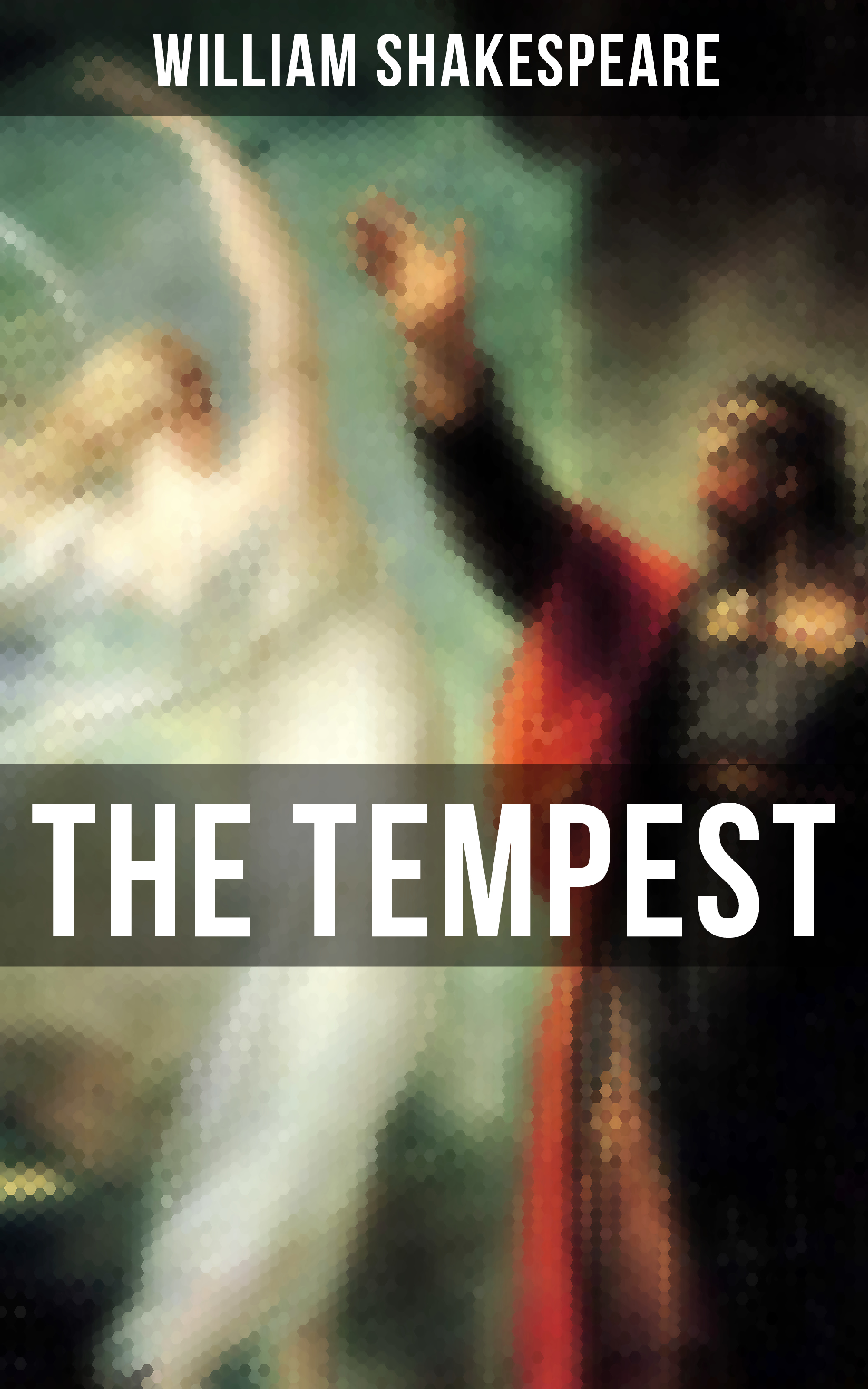answer.
MIRANDA.
‘Tis a villain, sir,
I do not love to look on.
PROSPERO.
But as ‘tis,
We cannot miss him: he does make our fire,
Fetch in our wood; and serves in offices
That profit us.—What ho! slave! Caliban!
Thou earth, thou! Speak.
CALIBAN.
[Within] There’s wood enough within.
PROSPERO.
Come forth, I say; there’s other business for thee:
Come, thou tortoise! when?
[Re-enter ARIEL like a water-nymph.]
Fine apparition! My quaint Ariel,
Hark in thine ear.
ARIEL.
My lord, it shall be done.
[Exit]
PROSPERO.
Thou poisonous slave, got by the devil himself
Upon thy wicked dam, come forth!
[Enter CALIBAN]
CALIBAN.
As wicked dew as e’er my mother brush’d
With raven’s feather from unwholesome fen
Drop on you both! A south-west blow on ye,
And blister you all o’er!
PROSPERO.
For this, be sure, tonight thou shalt have cramps,
Side-stitches that shall pen thy breath up; urchins
Shall forth at vast of night that they may work
All exercise on thee: thou shalt be pinch’d
As thick as honeycomb, each pinch more stinging
Than bees that made them.
CALIBAN.
I must eat my dinner.
This island’s mine, by Sycorax my mother,
Which thou tak’st from me. When thou cam’st first,
Thou strok’st me and made much of me; wouldst give me
Water with berries in’t; and teach me how
To name the bigger light, and how the less,
That burn by day and night: and then I lov’d thee,
And show’d thee all the qualities o’ th’ isle,
The fresh springs, brine-pits, barren place, and fertile.
Curs’d be I that did so! All the charms
Of Sycorax, toads, beetles, bats, light on you!
For I am all the subjects that you have,
Which first was mine own king; and here you sty me
In this hard rock, whiles you do keep from me
The rest o’ th’ island.
PROSPERO.
Thou most lying slave,
Whom stripes may move, not kindness! I have us’d thee,
Filth as thou art, with human care, and lodg’d thee
In mine own cell, till thou didst seek to violate
The honour of my child.
CALIBAN.
Oh ho! Oh ho! Would it had been done!
Thou didst prevent me; I had peopl’d else
This isle with Calibans.
PROSPERO.
Abhorred slave,
Which any print of goodness wilt not take,
Being capable of all ill! I pitied thee,
Took pains to make thee speak, taught thee each hour
One thing or other: when thou didst not, savage,
Know thine own meaning, but wouldst gabble like
A thing most brutish, I endow’d thy purposes
With words that made them known: but thy vile race,
Though thou didst learn, had that in’t which good natures
Could not abide to be with; therefore wast thou
Deservedly confin’d into this rock, who hadst
Deserv’d more than a prison.
CALIBAN.
You taught me language, and my profit on’t
Is, I know how to curse: the red plague rid you,
For learning me your language!
PROSPERO.
Hag-seed, hence!
Fetch us in fuel; and be quick, thou ‘rt best,
To answer other business. Shrug’st thou, malice?
If thou neglect’st, or dost unwillingly
What I command, I’ll rack thee with old cramps,
Fill all thy bones with aches; make thee roar,
That beasts shall tremble at thy din.
CALIBAN.
No, pray thee.—
[Aside] I must obey. His art is of such power,
It would control my dam’s god, Setebos,
And make a vassal of him.
PROSPERO.
So, slave: hence!
[Exit CALIBAN]
[Re-enter ARIEL invisible, playing and singing;
FERDINAND following]
[ARIEL’S SONG.]
Come unto these yellow sands,
And then take hands:
Curtsied when you have, and kiss’d,—
The wild waves whist,—
Foot it featly here and there;
And, sweet sprites, the burden bear.
Hark, hark!
[Burden: Bow, wow, dispersedly.]
The watch dogs bark:
[Burden: Bow, wow, dispersedly.]
Hark, hark! I hear
The strain of strutting Chanticleer
[Cry, Cock-a-diddle-dow.]
FERDINAND.
Where should this music be? i’ th’ air or th’ earth?
It sounds no more;—and sure it waits upon
Some god o’ th’ island. Sitting on a bank,
Weeping again the king my father’s wrack,
This music crept by me upon the waters,
Allaying both their fury and my passion,
With its sweet air: thence I have follow’d it,—
Or it hath drawn me rather,—but ‘tis gone.
No, it begins again.
[ARIEL sings]
Full fathom five thy father lies:
Of his bones are coral made:
Those are pearls that were his eyes:
Nothing of him that doth fade
But doth suffer a sea-change
Into something rich and strange.
